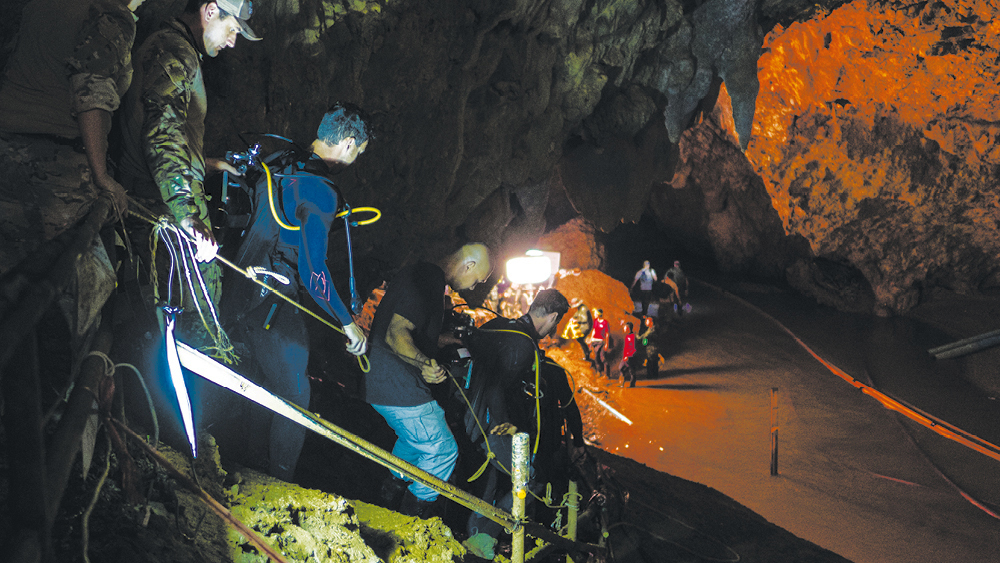The Thailand cave rescue shows us Australia can - and should - step up
Tim Costello on caring for strangers
In a world fractured by crisis and conflict, the extraordinary rescue of 12 young Thai footballers and their coach from an underground cave is a powerful reminder of what we could achieve together.
We witnessed humanity at its best as heroes from at least half a dozen countries, including Australia, risked everything in the perilous rescue effort.
This one small moment in time – marked by an absence of self-interest – proved that with courage, empathy and unity, humankind can achieve remarkable results.
We related to the plight of these vulnerable innocents, the perseverance against the odds by a crack international team and the final triumph over despair.
Around the world, many thousands – perhaps millions – prayed, hoped and watched. And eventually, out of the cave’s darkness emerged a spiritual light.
Hope was realised and gave us a vision of what we gain when we work together with one goal. This one small moment in time – marked by an absence of self-interest – proved that with courage, empathy and unity, humankind can achieve remarkable results.
Why were so many profoundly moved by this story? Perhaps because we related to the young boys trapped then set free by caring strangers. Perhaps we thought of our own children being in the same circumstances. We connected.
Australia’s expertise in the rescue reflects the role we could and should play in the world.
We connected a few years ago when we saw a photo of the tiny body of Alan Kurdi, the three-year-old Syrian refugee whose body washed up on the shore of the Mediterranean.
Why do we not connect in the same way to the hundreds who died at the same time as the Thailand rescue in Japanese floods? Or the 7500 children under five who still die every day of preventable or treatable illnesses?
This is a bias called the identifiable victim syndrome. We feel greater empathy and compassion for individuals we can identify with rather than a large group of anonymous people in peril.
Yet the Good Samaritan showed compassion for a stranger from another tribe he found beaten on a roadway. He didn’t know the victim’s story. He just saw someone in need and acted. The story suggests our faith should be galvanised to care as much for the nameless and faceless millions who are trapped in poverty and cast out to the fringes.
Hopefully, the Thai cave rescue gives us a new focus to broaden our ambit of concern. Australia’s expertise in the rescue reflects the role we could and should play in the world. We should realise the opportunities God is giving us to show his love to a world in need. Great hopes can be realised if we consistently work together to heal the world’s suffering.
Email This Story
Why not send this to a friend?

